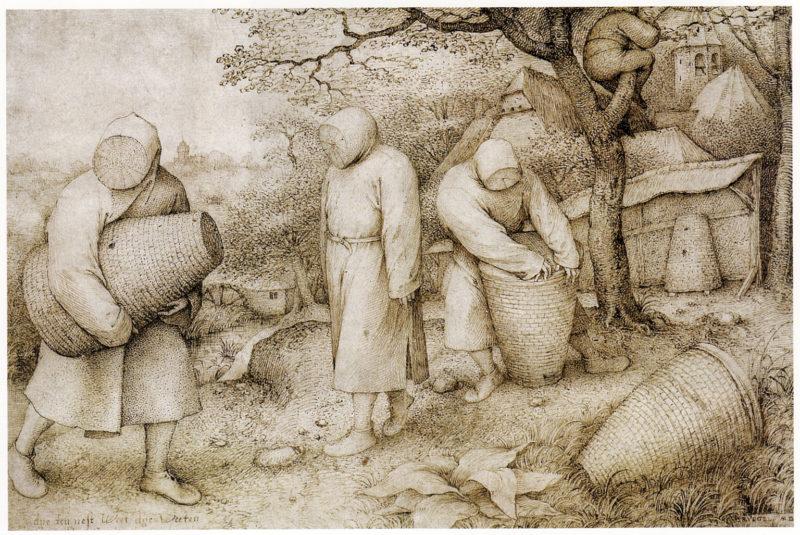
Pieter Bruegel the Elder (Wikimedia Commons)
Technology fetishism in the Anthropocene – An analysis of the material and conceptual foundations of global technology
If we understand technology in the context of the Anthropocene only through its technical aspects, we miss how modern technology is itself a social phenomenon that depends on a global ecologically unequal exchange of energy, labor time, land, and resources.

Pieter Bruegel the Elder (Wikimedia Commons)
The Anthropocene as the geology of mankind underlies a discussion whether globalized technology such as energy technologies or A.I. ought to be first and foremost conceptualized as a strategy of the human in relation to nature or as a strategy of some humans over others. I argue in the first paper of this cumulative PhD that both positions are mirrored in the philosophy and sociology of technology through the concepts of technology as an extension and as a fetish. The extension concept understands technology as an extension of the human body and its capabilities, resulting in a local ‘inward’ perspective. The fetish concept offers a contrary ‘outward’ perspective by drawing attention to the global socio-material context of modern technology. Despite their differences, I argue that both concepts share an underlying operational principle of technology functional simplification. Technology always involves a functional simplification of physical as well as social causality.
Along this theoretical framework I further investigate in a second paper the conceptual history of ‘production’ and argue that the concept’s shift away from an emanative process of bringing forth towards a promethean creationary act happened because of the increasing simplification of humans and nature as labor power. Along the theory of ecologically unequal exchange and the concept of Cheap Natures I argue that on the scale of global markets such simplification goes hand in hand with an obscuring and appropriation of their respective ‘reproductive context’, meaning the context through which their labor power is regenerated.
In my third paper, I plan to look at the phenomenon of AI colonialism. I thereby investigate to which extent globally unequal relations of exchange continue to be fetishized as the characteristics of technological artifacts (extending human capabilities) with regards to digital technologies.
Maximilian Pieper is a Ph.D. student at the Wissenschaftszentrum Umwelt, Augsburg University. Contact: maximilian.pieper@uni-a.de

